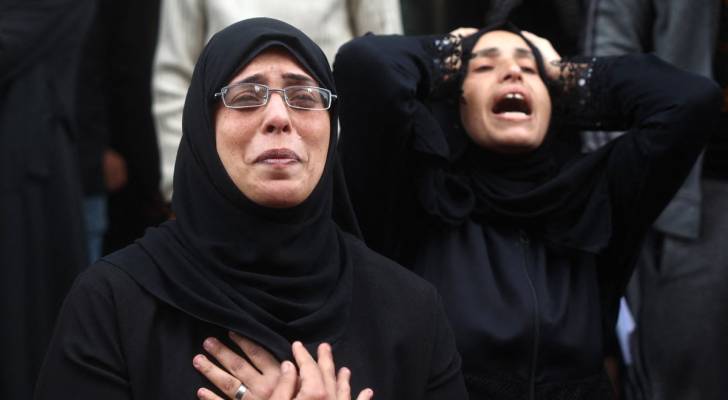(Credit: AFP)
"Continuous trauma": Palestinian reality cannot be captured by standard terms
In a recent discussion, a member of the French-speaking mental health network in Palestine highlighted the inadequacy of conventional mental health frameworks in addressing the deep-seated trauma experienced by Palestinians due to ongoing violence.
Emmanuel Kosadinos, speaking to Mediapart, emphasized that terms like post-traumatic stress disorder fail to capture the relentless nature of their suffering.
“Because there is no ‘post’ trauma when there is no moment of relief or return to a normal environment,” he explained. “It is a continuous trauma.”
Kosadinos articulated that continuous humiliation is central to the Palestinian experience, a form of trauma that often goes unacknowledged in mainstream clinical discourse.
“This humiliation, along with other acts of violence, strikes at the collective identity of Palestinians and affects deeply not only individuals, but also the very fabric of their community.”
In his article, translated by Al Jazeera Net, Kosadinos referenced Palestinian psychologist Samah Jabr’s remarks at a recent conference in Istanbul. He pointed out that mainstream psychiatry frequently perpetuates dehumanization.
Historical examples, such as colonial psychiatry in Algeria, illustrate how mental health frameworks have been manipulated to control indigenous populations.
“Today, similar tactics are used in Palestine, where resistance fighters are often described as mentally unstable. Therefore, mental health practitioners must reject these practices, focus on recognition and empowerment, and refrain from pathologizing trauma or exerting control over victims,” Kosadinos stated.
He cautioned that resilience in the Palestinian context extends beyond mere survival. Rather, it represents an active and forward-looking response to the future, encompassing a range of individual and collective actions from creative initiatives to community organizing.
“Documenting stories of suffering and resistance plays a crucial role in countering dominant narratives, and thus Palestinians must reveal their hidden truths and amplify them to challenge global indifference and denial,” he noted.
Kosadinos also emphasized that the implications of this aggression reach far beyond the immediate violence, suggesting that normalizing such violence against Palestinians reflects a broader decline in international moral standards.
“Hence, the echoes of these injustices resonate beyond Gaza, highlighting similarities with other colonial contexts where humanity has been denied and resistance has been pathologized.”
Furthermore, he pointed to the alarming rhetoric that often frames Palestinian women as a “demographic threat,” warning that such narratives precede acts of genocide. He described how construction projects, such as building car parks over mass graves, exemplify ongoing efforts to erase Palestinian history and identity.
In this challenging landscape, mental health emerges not only as a field of struggle but also as a form of resistance. Kosadinos remarked on the collapse of the mental health system in Gaza during the initial weeks of escalating violence, leaving tens of thousands without care.
In response, many Palestinians have turned to culturally rooted practices, such as reciting Quranic verses, to bolster their resilience, alongside community initiatives focused on healing through available resources.
He also noted that Palestinians living abroad endure their own traumas, grappling with survivor’s guilt and a profound disconnection from their homeland.
“Supporting these individuals requires recognition of their struggles and helping them transform their anger and despair into meaningful action,” he asserted.
Kosadinos praised Dr. Jabr’s insights into the interplay of trauma, resilience, and resistance within Palestinian society. He advocated for a rejection of dehumanizing narratives and the adoption of culturally sensitive approaches to collective healing.
“This is not only a moral necessity but also a global imperative, as the erosion of humanity in Palestine resonates beyond its borders,” he concluded.




